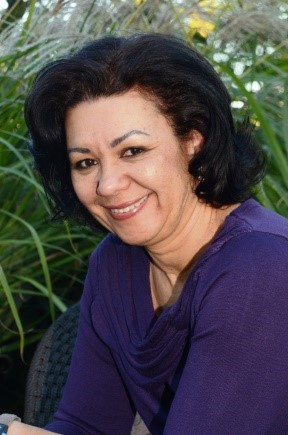Emotional Endings
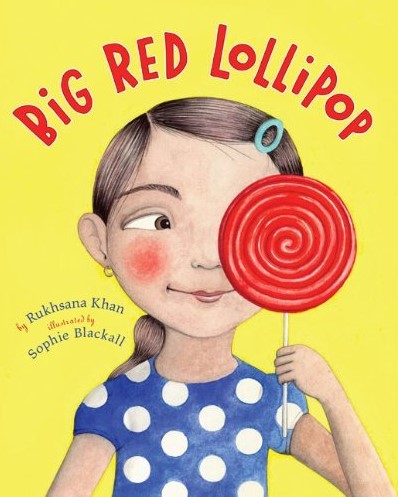
When Rubina, the oldest of three girls in Big Red Lollipop, illustrated by Sophie Blackall, is invited to her first birthday party, her younger sister begs to go too. Ami, their mother, is from Pakistan and doesn’t understand this social custom celebrated in North America so she demands that Rubina take Sana with her. Not only does Sana act out at the party but at home she eats the treats from Rubina’s goodie bag! Although culture sets the story in action, the sibling rivalry that follows is a universal truth in all cultures.
Khan shows Rubina’s excitement, the culture clash, and conflict all in this one scene below.
“Ami! I’ve been invited to a birthday party! There’s going to be games and toys, cake and ice cream! Can I go?”
Sana screams, “I wanna go too!”
“Ami says, ‘What’s a birthday party?’
“It’s when they celebrate the day they were born.”
“Why do they do that?”
Rubina’s disappointment, pain, and loneliness in her darkest moment is clear when Rubina isn’t invited to any more parties ‘for a really long time’. The art shows that passage in time by aging the youngest sibling.
“The worst thing is that all the girls at school know if they invite me to their birthday parties, I have to bring Sana.
I don’t get any invitation for a really long time.”
The end of the story is where Khan’s storytelling tugs at the heart. Now Sana comes home with an invitation and the youngest sister begs to go with her. But Rubina shows compassion and speaks up on Sana’s behalf, no doubt remembering her own experience. After the party, Khan has Sana making her amends for the way she acted giving her young audience a fitting, satisfying, and emotional resolution.
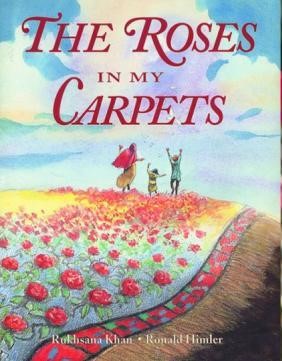
The Roses in My Carpets, illustrated by Ronald Himler, is based on a true story of Khan’s Afghan foster child. In every scene are examples of powerful and emotional storytelling. Khan uses vivid details throughout this story set during the day in the life of a boy in a refugee camp in Pakistan.
She shows the struggles the boy faces living in a refugee camp in a mud hut.
“The plastic handle cuts into my hand. I must stop and rest several times.”
“At home I wash my face – a useless habit.”
Here she shows the love he has for family when sharing food with his younger sister.
“I will pull my sash a little tighter.”
The boy shares his hopes and dreams when we learn why he wants to become a master craftsman.
“I will have a skill no one can take away. As long as I am strong and able, my family will never go hungry.”
Khan handles the difficult topic of war with sensitivity and humanity.
As an author and storyteller, Khan entertains and educates her young audience. Her books teach us about Pakistani culture, how to develop a character-driven story, and how to write from the heart.
Learn More from Rukhsana Khan
 Now’s your chance to learn from Rukhsana Khan directly!
Now’s your chance to learn from Rukhsana Khan directly!
At Picture Book Summit 2019, Rukhsana will be presenting “Cultural Connections: From the Specific to the Universal.” How do you tell a story about a specific cultural paradigm and make it universally accessible? Whether you’re writing about a particular custom, tradition, place, food, or experience, Rukhsana will share how to translate your unique viewpoint into one that resonates for all readers.
Don’t miss the chance to hear from Rukhsana live and ask questions, all from the comfort of home! Check out Rukhsana’s presentation as well as our other workshops coming to you online October 5th on our Program Page.


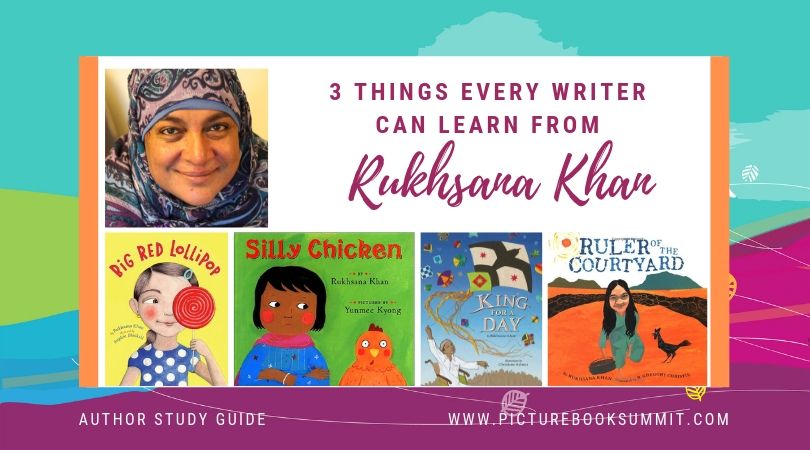
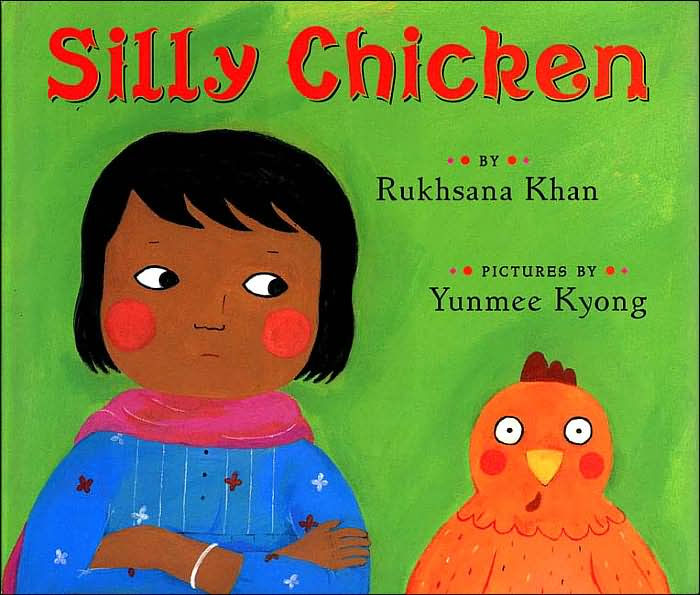
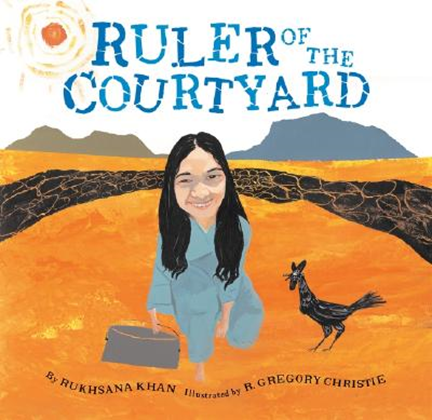
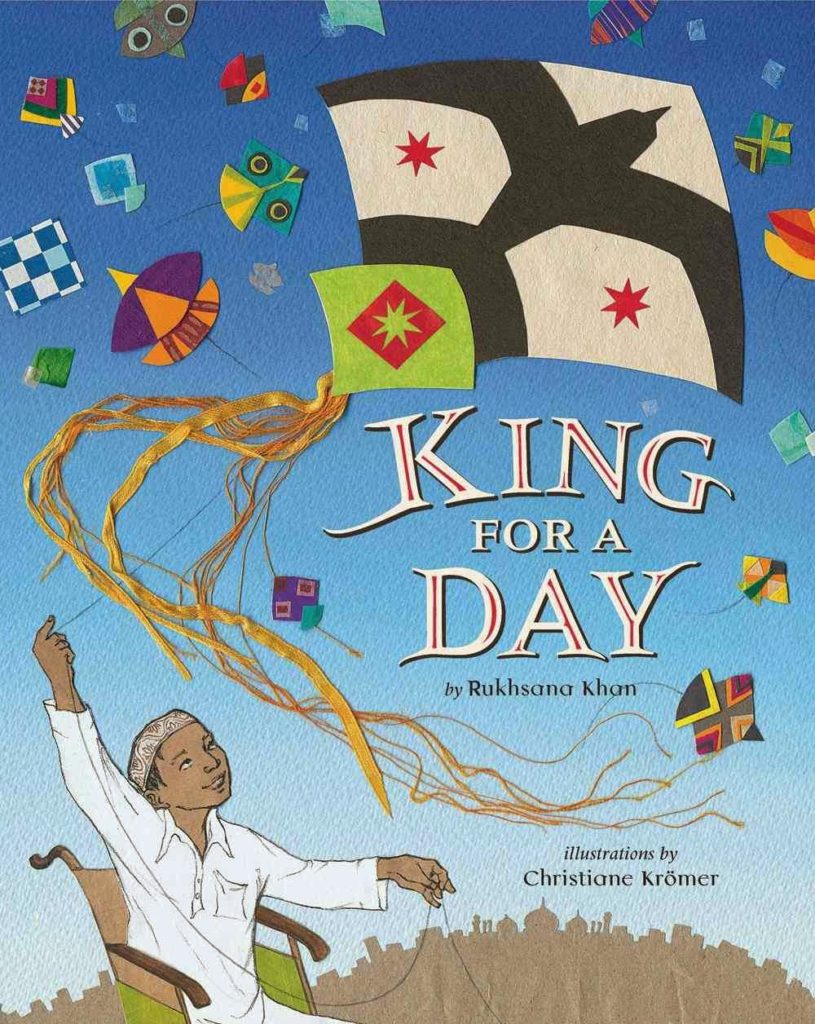


 Now’s your chance to learn from Rukhsana Khan directly!
Now’s your chance to learn from Rukhsana Khan directly!